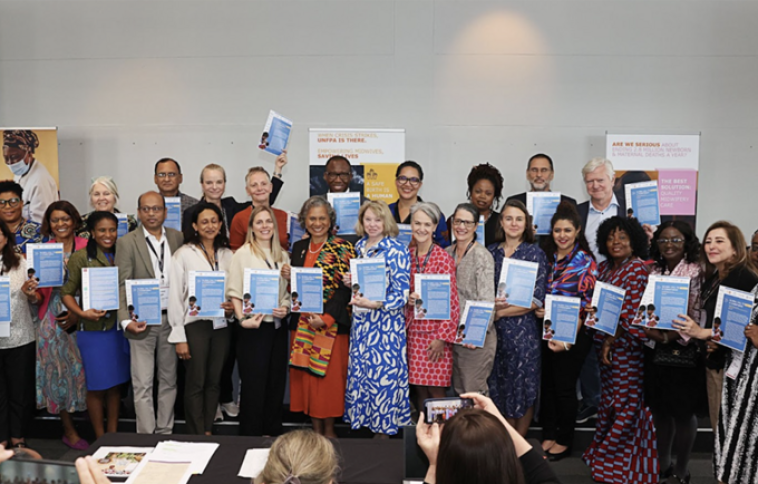FIGO joins global call for accelerated action and investment in quality midwifery care

On the first day of the International Maternal Newborn Health Conference (IMNHC) in Cape Town, South Africa, FIGO joined partners hosted by the United Nations Population Fund (UNFPA), International Confederation of Midwives (ICM), World Health Organization (WHO) and United Nation's Children's Fund (UNICEF) to call upon UN Member States to accelerate action and investment in quality midwifery care.
Together: strengthening partnerships
The call followed a renewal of commitments from FIGO and global partners in midwifery to support, strengthen and promote midwifery models of care. FIGO is a proud partner of the International Confederation of Midwives and a critical care provider in ensuring positive maternal and newborn outcomes, FIGO’s leaders came together with global midwifery leaders, stakeholders, policy makers, programme managers and other SRMNH health care professionals to highlight this critical gap in women’s health care.
Together, the speakers and panels discussed how this important cadre can be strengthened through global collaborations to help achieve sustainable development goal (SDG) 3.1 in ending preventable maternal and newborn mortality by 2030. Panel members – including FIGO’s Division of Maternal and Newborn Health Director Professor Bo Jacobsson – explored the enabling environment that is needed and the inter-professional collaboration necessary for bringing about optimum health outcomes for woman and newborns.
Together: strengthening midwifery
IMNHC follows almost immediately after International Day of the Midwife, which has highlighted the global shortage of some 900,000 midwives that threatens the lives and long-term health of women. Addressing the deficit could help prevent two-thirds of maternal and newborn deaths, saving more than 4 million lives a year by 2035.
Midwives are a critical component to women’s survival and empowerment, yet there are many challenges and impediments to quality midwifery service delivery, due to inadequate numbers, distribution issues, poor quality of education, regulations and workforce policies. As the vast majority of the world’s midwives are women, they suffer gender disparities in pay, career pathways and decision-making.
FIGO will continue to amplify the call for accelerated action and enhanced investment in midwifery. OBGYNs and midwives together play a key role in ensuring positive outcomes for women and newborns throughout pregnancy and childbirth. Success will be underpinned by alignment, harmonisation and scaling up of good practices.